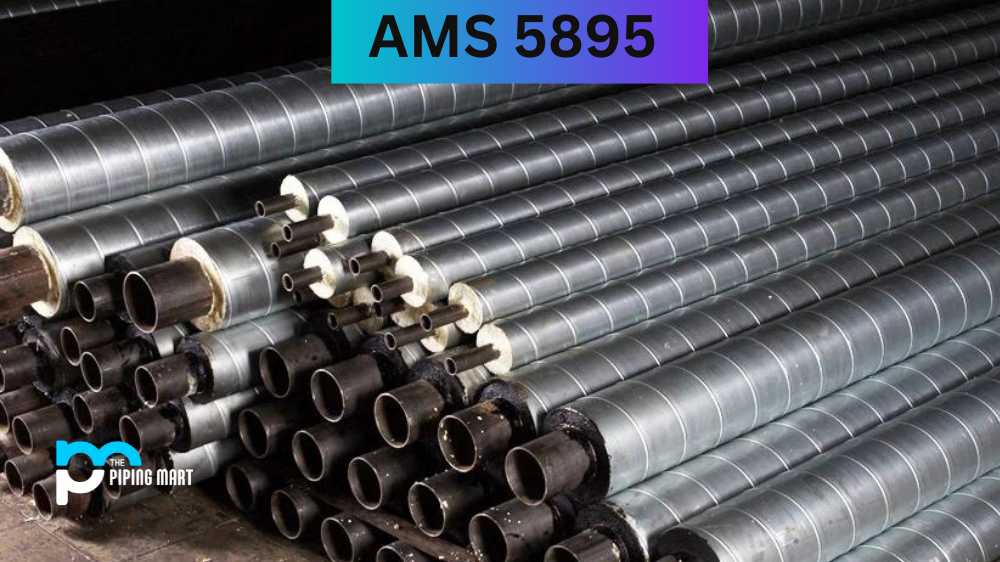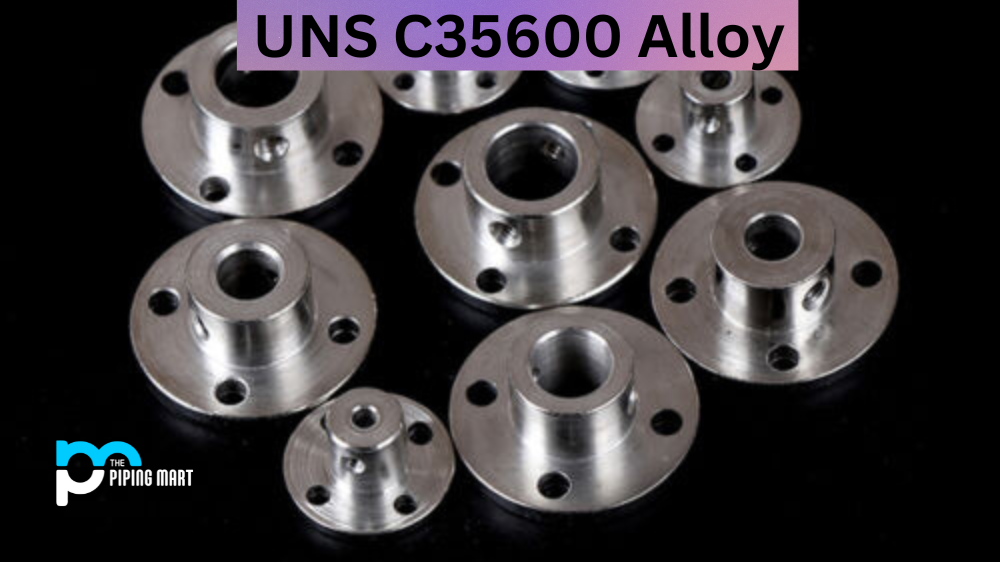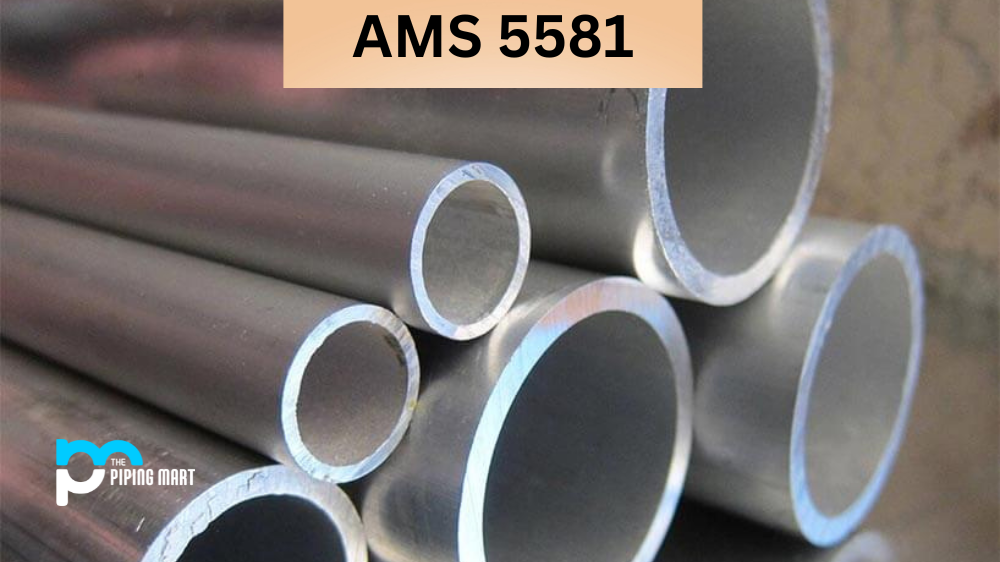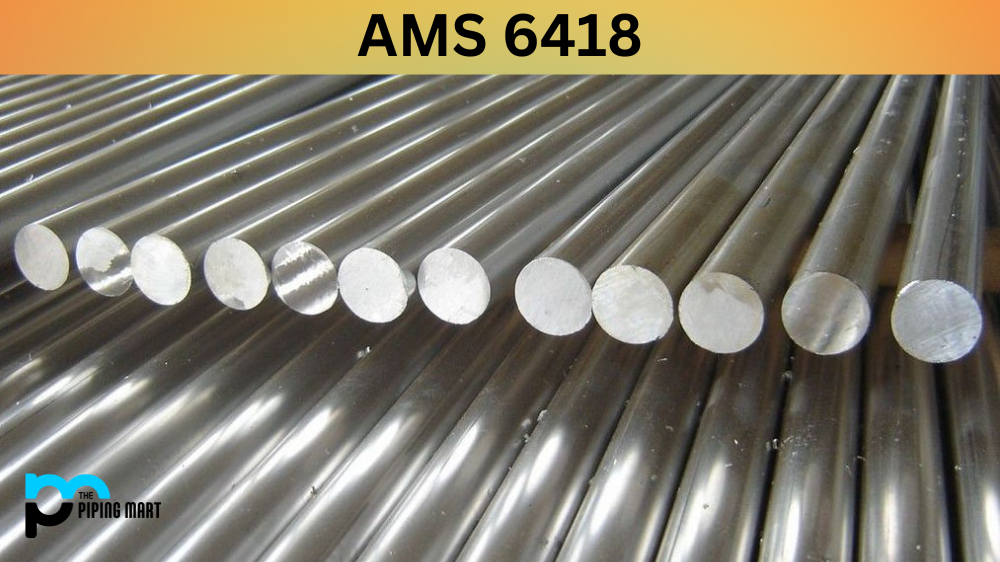When choosing a suitable material for industrial applications, several factors are paramount, including the material’s properties, durability, and functionality. One material that has proven to be reliable and durable in numerous industries is AMS 5895. But what is AMS 5895? This blog post will investigate this material’s composition, physical and mechanical properties, uses, hardness, and heat treatment.
What is AMS 5895?
AMS 5895 (also known as Stainless Steel A286) is a specification for a high-strength, corrosion-resistant alloy used in various industries, including aerospace and automotive. This alloy is known for its exceptional strength-to-weight ratio, making it a popular choice in applications where weight is a concern. The alloy is also resistant to extreme temperatures, making it ideal for harsh environments. AMS 5895 has been extensively tested and meets strict industry standards for performance and quality, making it a reliable choice for various applications. Whether designing aircraft parts, high-performance car components, or other precision parts that require strength and durability, AMS 5895 is worth considering.
AMS 5895 Composition
AMS 5895 is a high-performance nickel, cobalt, and chromium alloy. It’s a heat-resistant alloy that can handle temperatures up to 1600°F, making it an ideal material for high-temperature applications. Moreover, the material is highly resistant to corrosion, oxidation, and wear and tear, making it a top choice for demanding industrial uses.
| Element | Content (%) |
|---|---|
| Iron, Fe | 54 |
| Nickel, Ni | 25.5 |
| Chromium, Cr | 14.8 |
| Titanium, Ti | 2.13 |
| Molybdenum, Mo | 1.30 |
| Manganese, Mn | 1.0 |
| Silicon, Si | 0.50 |
| Vanadium, V | 0.30 |
| Aluminum, Al | 0.18 |
| Carbon, C | 0.040 |
| Phosphorous, P | 0.020 |
| Sulfur, S | 0.015 |
| Boron, B | 0.0060 |
AMS 5895 Physical Properties
AMS 5895 has excellent physical properties that make it ideal for critical applications. For starters, the material has a density of 8.25 g/cm3. In addition, its melting point is 2370°F, and its coefficient of thermal expansion is 7.83 µm/m °C.
| Properties | Metric | Imperial |
|---|---|---|
| Density | 7.92 g/cm3 | 0.286 lb/in3 |
| Melting point | 1399°C | 2550°F |
AMS 5895 Mechanical Properties
Another essential aspect of AMS 5895 is its mechanical properties. The material possesses high tensile and yield strength, making it an ideal candidate for demanding applications. The yield strength of AMS 5895 at room temperature is around 80 ksi. Additionally, the material has excellent fatigue resistance, which translates to increased durability and longevity.
| Properties | Metric | Imperial |
|---|---|---|
| Tensile strength | 1035 MPa | 150100 psi |
| Yield strength (@strain 0.200%) | 759 MPa | 110000 psi |
| Elongation at break | 25% | 25% |
| Reduction of area | 40% | 40% |
| Hardness, Brinell (estimated from Rockwell C value for Brinell test with 3000 kg load/10 mm diameter ball) | 304 | 304 |
| Hardness, Knoop (estimated from Rockwell C value) | 330 | 330 |
| Hardness, Rockwell C | 32 | 32 |
| Hardness, Vickers (estimated from Rockwell C value) | 318 | 318 |
AMS 5895 Equivalent
| AISI 660 | AMS 5525 | AMS 5726 | AMS 5732 | AMS 5734 |
| AMS 5731 | AISI 662 | AMS 5737 | AMS 5804 | UNS S66286 |
| AMS 5853 | AMS 5805 | AMS 5858 | DIN 1.4943 | SPS M250 |
| DIN 1.4944 | GE B50T81 | GE B50T12 | GE B50T1181 | ASTM A453 Grade 660 |
| ASTM A638 Grade 660 | stainless steel A-286 |
AMS 5895 Uses
Due to its unique properties, AMS 5895 has multiple industrial applications. For example, the material is widely used in aerospace manufacturing components such as gas turbines and jet engines. It’s also used in automotive, chemical processing, and power generation industries.
AMS 5895 Hardness
AMS 5895 sheet is a highly durable material with high hardness levels. The material has a Rockwell hardness of 52-57 Hrs, which makes it ideal for wear-resistant applications. Additionally, AMS 5895 has excellent resistance to both erosive and abrasive wear.
AMS 5895 Heat Treatment
AMS 5895 plate can be heat-treated to improve its properties further. Precipitation-hardening is the preferred heat treatment method for this material. The process involves heating the material to a specific temperature range and cooling it at a controlled rate. This process improves its mechanical properties and makes it ideal for high-stress applications.
Conclusion:
In conclusion, if you’re looking for a high-performance material that can withstand high temperatures, resist corrosion, and be wear-resistant, AMS 5895 material is an excellent choice. Its physical and mechanical properties make it ideal for numerous industrial applications, including aerospace, automotive, chemical processing, and power generation. Moreover, the material’s hardness and the possibility of heat treatment make it a durable and cost-effective option.

A passionate metal industry expert and blogger. With over 5 years of experience in the field, Palak brings a wealth of knowledge and insight to her writing. Whether discussing the latest trends in the metal industry or sharing tips, she is dedicated to helping others succeed in the metal industry.




